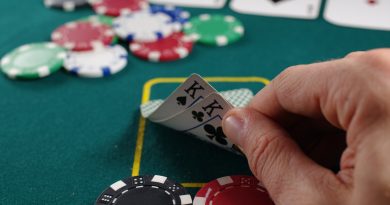Betting Addiction Help: Finding the Path to Recovery
Betting Addiction Help: Finding the Path to Recovery
Betting addiction, also known as compulsive gambling, is a serious issue that affects countless individuals worldwide. It can lead to financial ruin, damaged relationships, and mental health challenges. But no matter how far you’ve fallen into the cycle, recovery is possible, and there is help available. Here’s a guide to understanding betting addiction and the steps you can take to regain control of your life.

Recognizing the Signs of Betting Addiction
The first step toward recovery is recognizing the signs of a betting addiction. Many people may deny their problem or make excuses for their behavior, but certain red flags signal an unhealthy relationship with gambling. Here are some common signs:
- Constant preoccupation with gambling: Thinking about betting even when you’re not actively doing it.
- Increasing the stakes: Needing to bet more money to feel the same thrill.
- Chasing losses: Trying to win back money lost through more betting.
- Neglecting responsibilities: Failing to fulfill personal, work, or family obligations due to gambling.
- Lying about gambling: Hiding your betting habits from loved ones.
- Borrowing money: Asking for loans or using credit to fund gambling.
Seeking Professional Help
Once you’ve acknowledged the problem, seeking professional help is a critical next step. There are several ways to get assistance for betting addiction:
- Counseling and Therapy: A licensed therapist specializing in gambling addiction can help you understand the root causes of your addiction. Cognitive Behavioral Therapy (CBT) is often recommended to reframe harmful thought patterns and behaviors.
- Support Groups: Programs like Gamblers Anonymous (GA) offer peer support through group meetings and a 12-step recovery program. These groups provide a space to connect with others facing similar challenges, offering encouragement and accountability.
- Rehabilitation Centers: For more severe cases, inpatient rehabilitation centers can provide a structured environment away from gambling triggers, helping you focus on recovery with the support of healthcare professionals.
Setting Up Financial Safeguards
A key part of recovery is rebuilding your financial health and preventing further financial damage. Here are some practical steps:
- Hand Over Financial Control: Ask a trusted family member to manage your finances temporarily to prevent impulsive betting.
- Limit Access to Money: Consider setting up a separate bank account with strict spending limits or canceling credit cards to reduce the temptation to gamble.
- Seek Financial Counseling: A financial advisor specializing in addiction recovery can help you create a budget, manage debts, and set realistic financial goals.
Coping Strategies for Cravings
Cravings to bet can be overwhelming, but with the right strategies, you can manage them:
- Delay the Urge: When you feel the urge to gamble, delay the action for at least 30 minutes. Use that time to engage in a different activity or contact a support person.
- Avoid Triggers: Identify and avoid situations that trigger your gambling urges, whether it’s watching sports or visiting casinos. This could mean skipping social events that involve betting or blocking gambling websites on your devices.
- Practice Relaxation Techniques: Techniques like deep breathing, meditation, or exercise can help you cope with stress and cravings in a healthier way.
Rebuilding Relationships
Gambling addiction often damages personal relationships. Part of recovery is making amends and rebuilding trust with loved ones:
- Open Communication: Be honest with your family and friends about your addiction and your commitment to recovery. Clear, ongoing communication is key to regaining their trust.
- Apologize and Make Amends: Apologize for past behaviors and consider setting up repayment plans for any money borrowed due to gambling.
- Rebuild Trust with Actions: Trust will not be rebuilt overnight. Focus on consistent actions over time, showing that you are committed to recovery and personal growth.
Looking to the Future
Recovery from betting addiction is an ongoing process, but with the right help and strategies in place, you can reclaim control over your life. Set small, achievable goals, and celebrate the progress you make along the way. Whether it’s a day without gambling or a positive conversation with a loved one, these victories matter.
Resources for Help
If you’re struggling with betting addiction, don’t hesitate to reach out for help:
- National Problem Gambling Helpline: 1-800-522-4700 (24/7 confidential support)
- Gamblers Anonymous: [Link to the website]
- Crisis Text Line: Text HOME to 741741
Remember, you are not alone in this battle. Help is available, and a brighter, gambling-free future is within reach.
This post is intended for informational purposes only and should not replace professional advice. Always consult healthcare providers for a personalized treatment plan.



